“Silent Solutions: Finding the Perfect Anti-Bark Collar for Your Canine Companion”
** Introduction **
Are you tired of your furry friend’s constant barking? If you are wondering “ What is the best collar to stop a dog barking ,” then you have come to the right place. Dealing with a dog’s excessive barking can be challenging, but the right collar can make a huge difference.
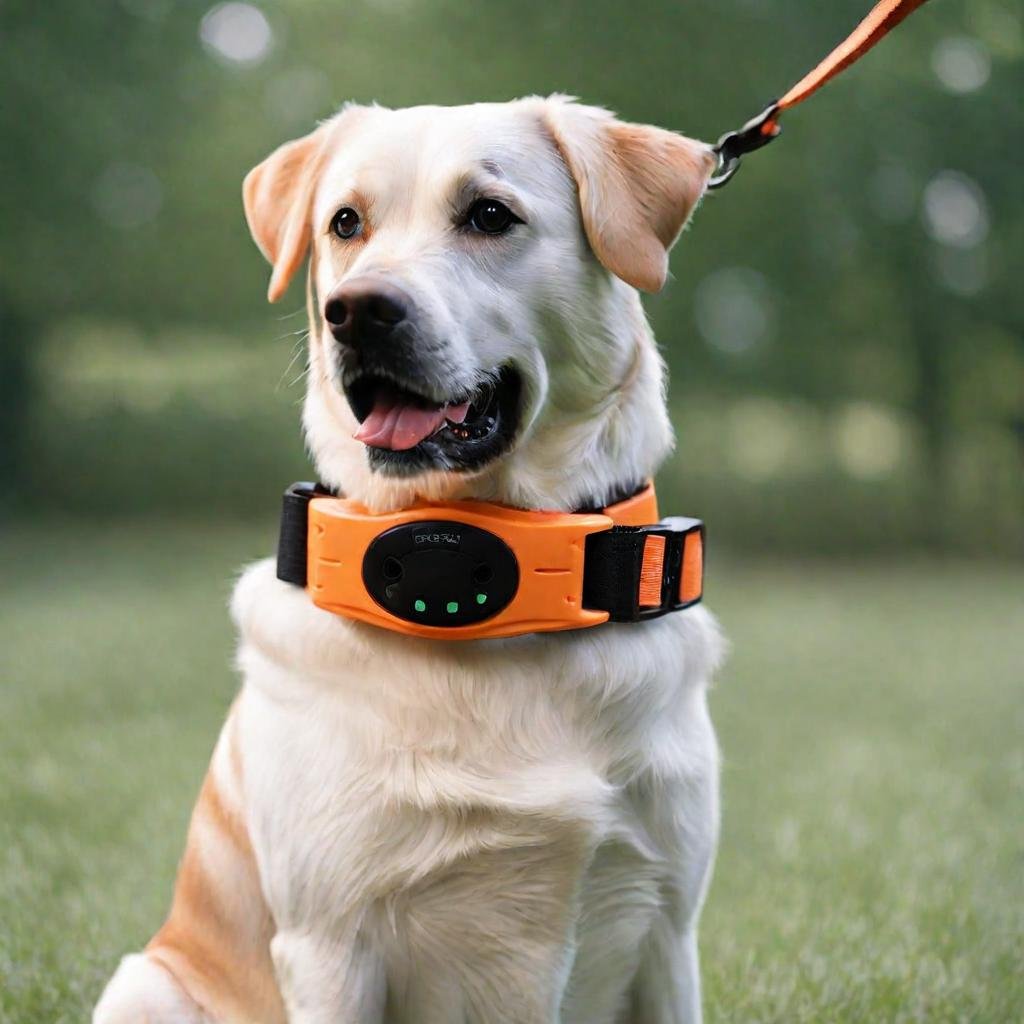
Table of Contents
Imagine a quiet evening with no constant interruptions or noise complaints from neighbors. Anti-bark collars offer a promising solution to this common problem, but it is important to choose wisely. In this guide, we’ll delve deeper into the world of anti-bark collars, exploring the different types and ideas to help you find the right fit for your canine companion.
Whether your dog barks due to excitement, anxiety or simply to communicate, it is important to understand their behavior in order to choose an effective collar. We’ll discuss citronella spray collars, shock collars, ultrasonic collars and more, discussing the advantages and disadvantages of each. It’s not just about getting the barking to stop – it’s about doing so in a safe and humane way.
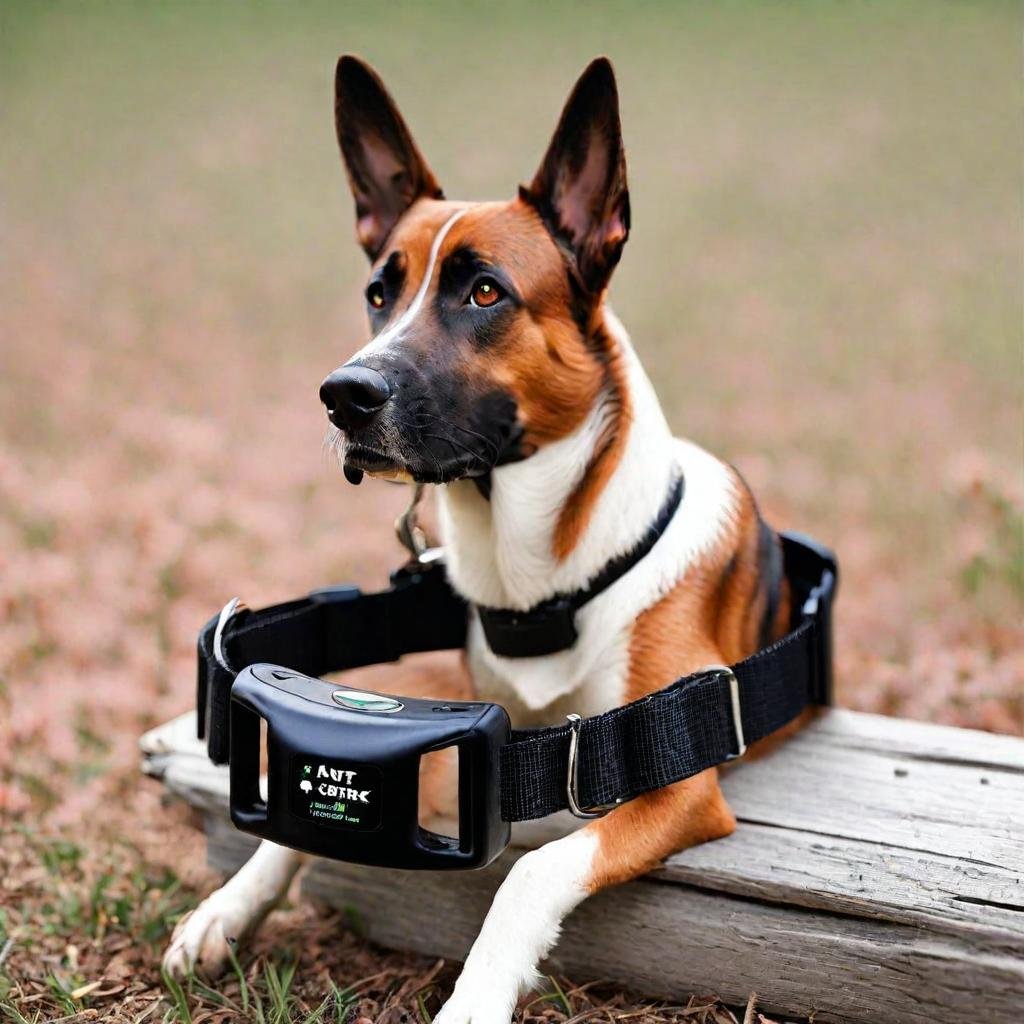
So, join us on this journey of peace. We’ll deal with the noise and find the quiet solution that suits your dog’s needs and your peace of mind. Let’s explore the world of anti-bark collars together, empowering you to make an informed choice for a harmonious home life.
Understanding Barking Behavior ;
Understanding why dogs bark is the first step toward effectively addressing this behavior and finding the best dog collar to stop barking. Dogs bark for a variety of reasons, and each bark tells us something about their mental state or environment.
1. Communication and Expression:
Barking is a natural form of communication for dogs. They may bark to express excitement, welcome you, or alert you to something unusual. It’s their way of saying, “Hey, I’m here!”
2. Attention-Seeking Behavior:
Some dogs bark to get attention, whether they want to play, go out, or receive affection. If barking is addressed, the behavior may persist.
3. Anxiety and stress:
Dogs may bark excessively when anxious or stressed. This may be due to separation anxiety, fear of loud noises, or unfamiliar surroundings.
4. Territorial Behavior:
Barking can be a sign of territorial tendencies. Dogs may bark to defend their territory or to warn off intruders.
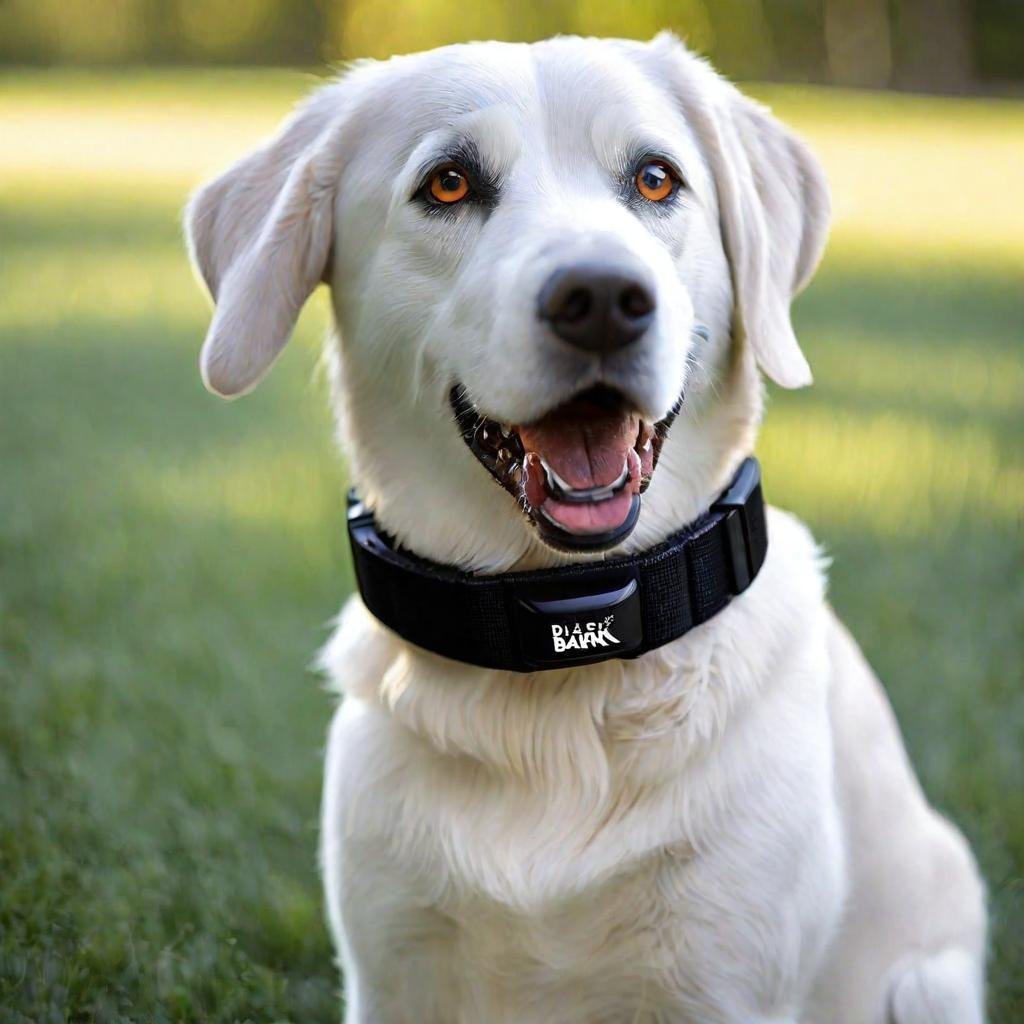
To determine the best anti-bark collar, consider why your dog is barking. For attention-seeking dogs, a distraction collar such as citronella spray can be effective. Anxious dogs may respond better to collars with gentle vibrations. Understanding your dog’s motivation behind barking will guide you in choosing the most appropriate collar, ensuring both effectiveness and your dog’s well-being.
Types of Anti-Bark Dog Collars ;
When it comes to dog anti-bark collars, there are several types available, each designed to address barking behavior in its own unique way. Let’s explore these options to find out which can be the best dog collar to stop your furry friend from barking.
1. Citronella spray collars:
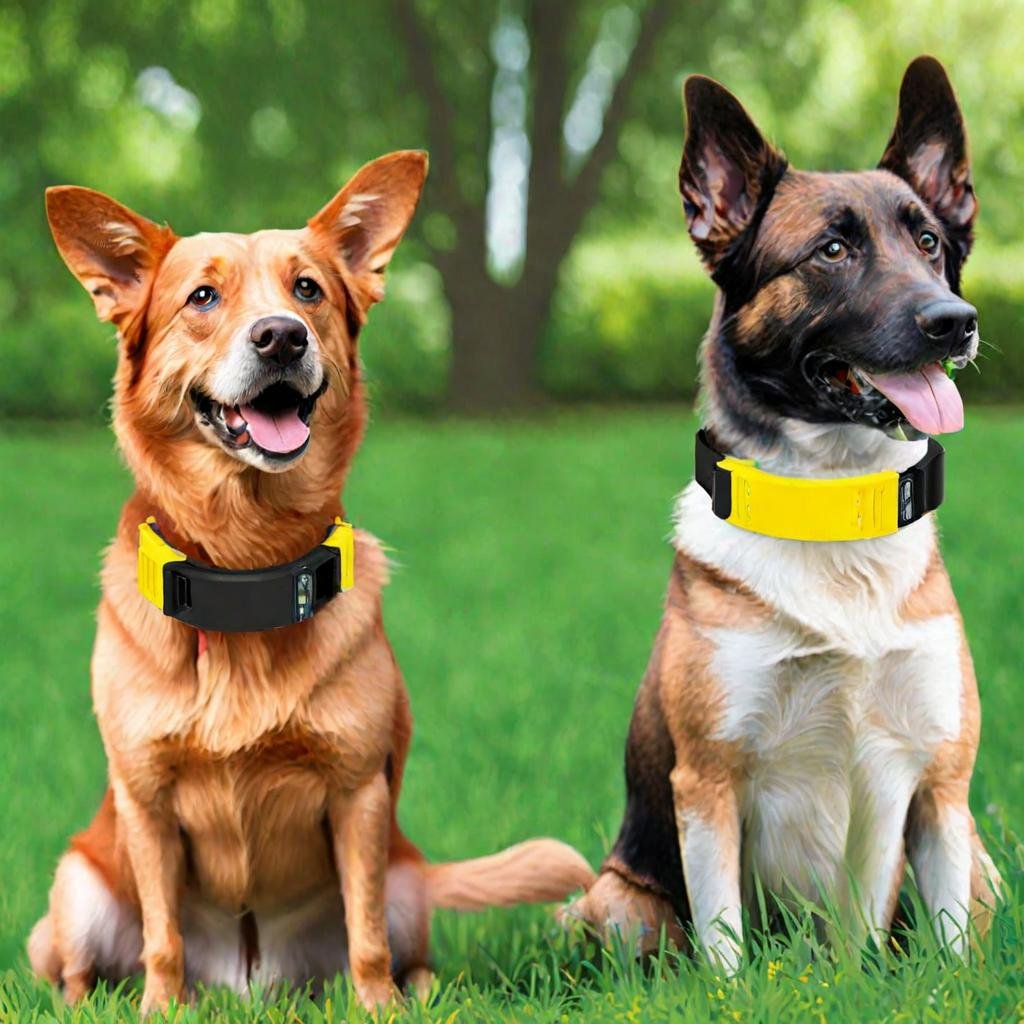
These collars release citronella scent near your dog’s nose when he barks. Many dogs find this smell unpleasant, which may deter further barking.
2. Shock collars (static or vibration):
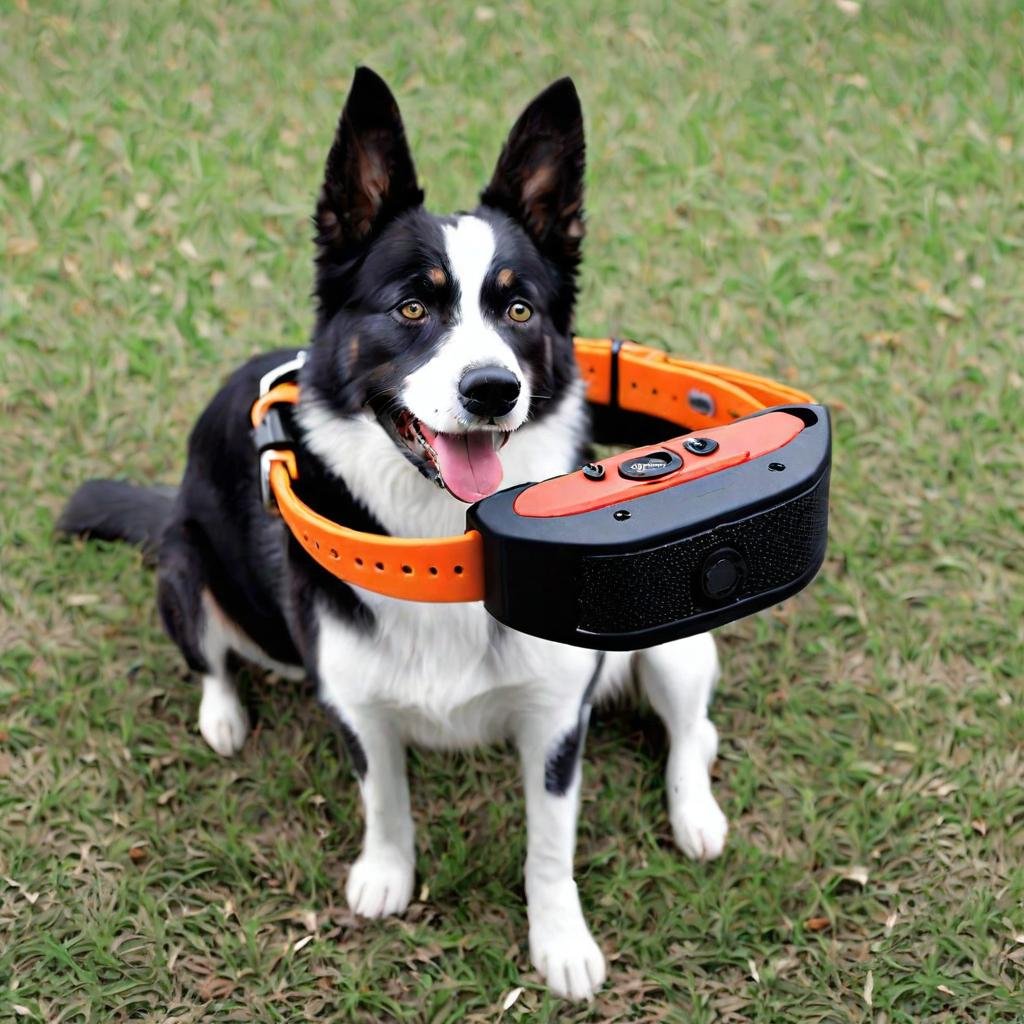
These collars deliver a mild static shock or vibration when triggered by barking. The idea is to interrupt the barking behavior with a mild deterrent measure.
3. Ultrasonic collars:
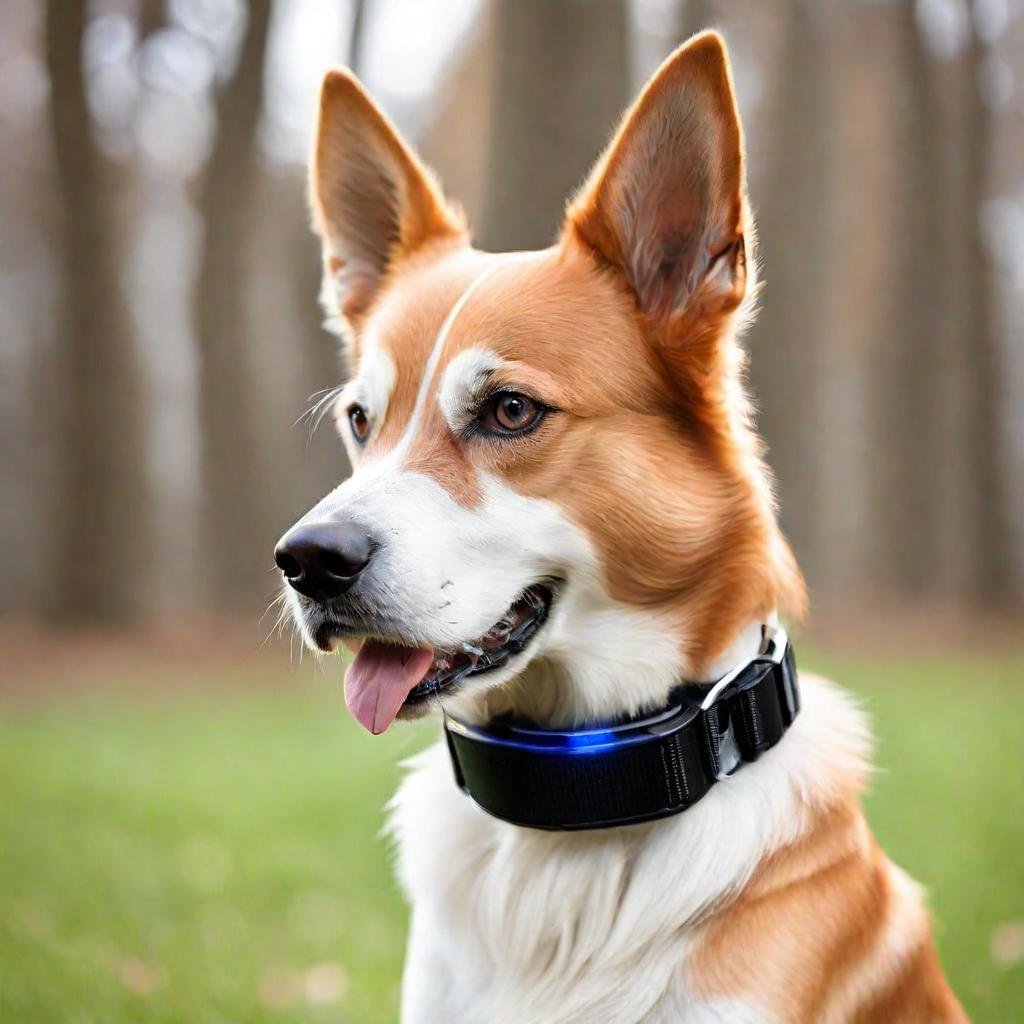
Emitting high-intensity ultrasonic sounds when activated by barking, these collars are designed to be irritating to dogs but inaudible to humans.
4. Combination collars:

Some collars combine features such as vibration, sound and/or spray to provide multiple deterrents for different dog sensitivities.
Choosing the right type of collar depends on your dog’s temperament and the underlying cause of their barking. For example, sensitive dogs may respond better to citronella or ultrasonic collars, while others may need a stronger deterrent such as a shock collar. Always prioritize your dog’s comfort and well-being when selecting an anti-bark collar. Experimenting with different types under professional guidance can help identify the most effective and humane solution for your canine companion.
Considerations Before Choosing a Collar ;
Before choosing an anti-bark dog collar, it is important to consider several factors to ensure your dog’s well-being and the collar’s effectiveness in preventing excessive barking. Let’s look at these ideas to help you make an informed decision on the best dog collar to stop barking.
1. Identify the root cause:
Understand why your dog is barking excessively. Is this due to anxiety, boredom, territorial behavior or some other reason? Identifying the cause will help you choose a collar.
2. Consult a professional:
Consult a veterinarian or professional dog trainer. They can provide information about your dog’s behavior and suggest suitable collar options.
3. Collar Sensitivity:
Consider your dog’s sensitivity level. Some dogs may be more affected by certain types of collars than others. Choose a collar that matches your dog’s temperament.
4. Avoid overuse:
Anti-bark collars should be used as a training tool in conjunction with positive reinforcement methods. Avoid using the collar excessively or as a substitute for proper training and attention.
By carefully considering these factors, you will be better able to select a collar that effectively and compassionately addresses your dog’s barking behavior. Remember, the goal is to find a solution that promotes your dog’s well-being while maintaining a peaceful environment for everyone.
Pros and Cons of Each Collar Type ;
Each type of anti-bark dog collar comes with its own advantages and disadvantages. Understanding these can help you choose the best dog collar to stop barking for your specific situation.
1. Citronella Spray Collars:
Pros:
- Using natural sprays does not cause any harm to dogs
- Effective for many dogs sensitive to odor.
- Does not cause discomfort like a shock collar.
Cons:
- Requires regular refills of citronella.
- May not be effective for all dogs, especially those unfazed by scents.
- Can be affected by wind or weather conditions.
2. Shock Collars (Static or Vibration):
Pros:
- Immediate response to barking.
- Can be effective for persistent barkers.
Cons:
- Controversial due to potential discomfort or fear induced in dogs.
- Not suitable for sensitive or fearful dogs.
- Risk of overcorrection or misuse leading to negative associations.
3. Ultrasonic Collars:
Pros:
- Humanely deters barking with a high-pitched sound.
- Generally safe and non-invasive.
Cons:
- Effectiveness can vary based on a dog’s hearing sensitivity.
- May not work well in outdoor environments with background noise.
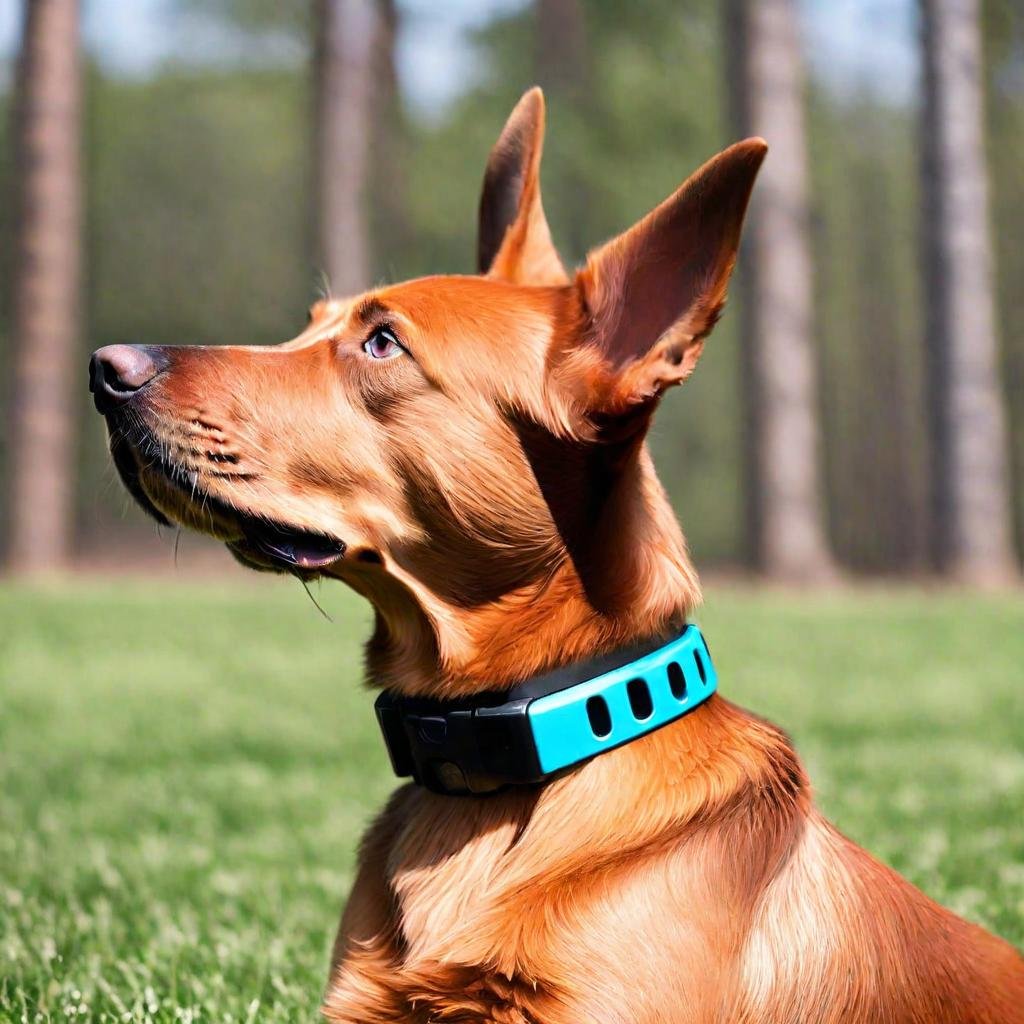
4. Combination Collars:
Pros:
- Offer multiple deterrents to suit different dogs’ sensitivities.
- Can be more effective for stubborn barkers.
Cons:
- Complex mechanisms may require more maintenance.
- Higher cost compared to single-feature collars.
When choosing an anti-bark collar, evaluate these advantages and disadvantages based on your dog’s needs and sensitivities. It is essential to prioritize your dog’s comfort and well-being when effectively addressing excessive barking. Experimenting with different types of collars under professional guidance can help determine the most appropriate option for your furry companion.
Choosing the Right Collar for Your Dog ;
Choosing the right anti-bark collar for your dog involves considering several important factors to ensure both effectiveness and your dog’s well-being. Let’s explore these ideas to help you choose the best dog collar to stop barking.
1. Understand your dog’s sensitivity:
Keep in mind your dog’s temperament and sensitivity level. Some dogs may be startled by a shock collar, while others may not be bothered by citronella spray.
2. Identify barking triggers:
Determine what is causing your dog to bark excessively. Is it anxiety, attention seeking or territorial behavior? This will guide your choice of collar type.
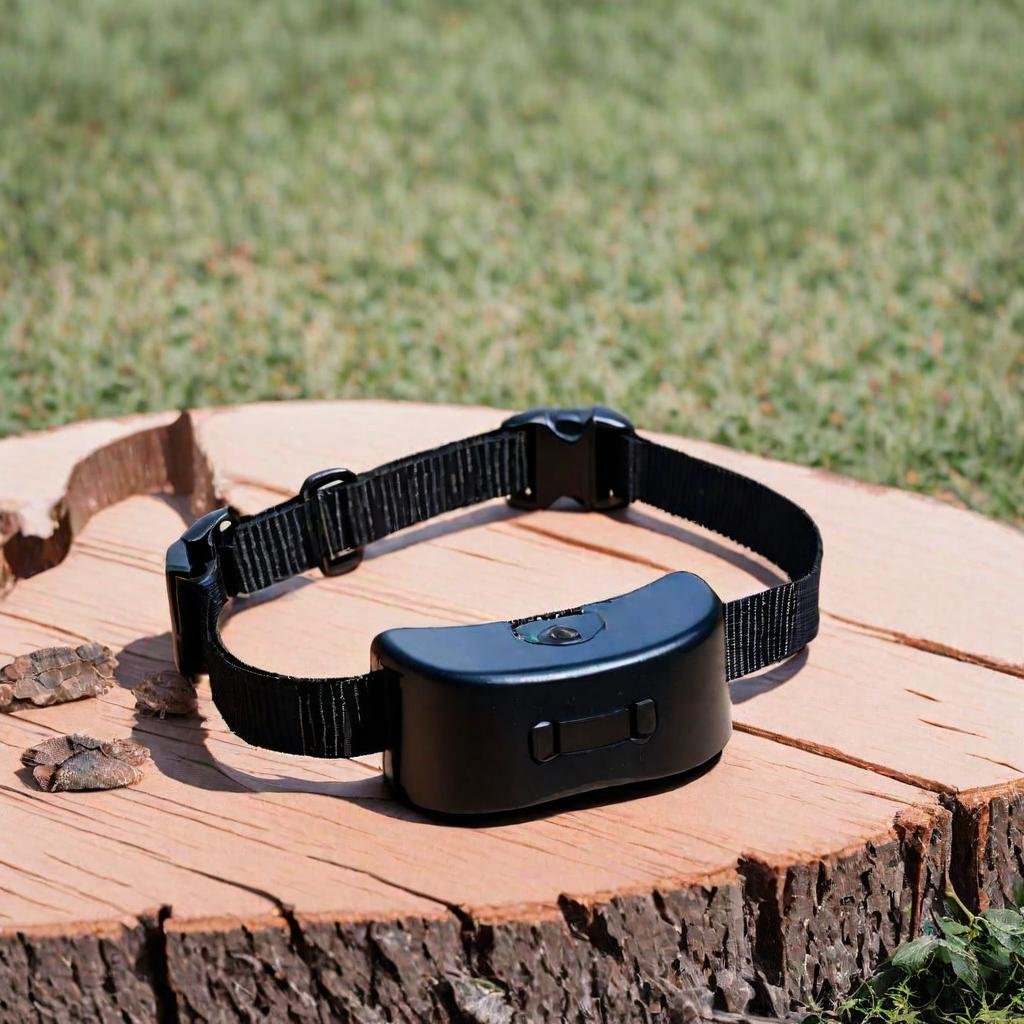
3. Choose a humane option:
Choose a collar that uses humane methods, such as vibration or sound, to deter barking. Avoid collars that may cause discomfort or distress to your dog.
4. Consider size and fit:
Make sure the collar is appropriate for your dog’s size and breed. A collar that is too loose or tight may be ineffective or uncomfortable for your dog.
5. Consult a professional:
Consult a veterinarian or dog trainer to recommend the most appropriate collar based on your dog’s specific needs and behavior.
By considering these factors, you can make an informed decision when choosing an anti-bark collar that effectively addresses your dog’s barking behavior while prioritizing his comfort and well-being. Experimenting with different collars under professional guidance can help determine the most suitable option for your canine companion.
Training and Correct Use ;
Training and correct use of an anti-bark collar is essential to effectively address barking behavior while ensuring your dog’s well-being. Let’s explore the key aspects of training and using these collars responsibly.
1. Positive Reinforcement:
Combine the use of the collar with positive reinforcement techniques. Reward your dog for calm behavior to reinforce the desired outcome.
2. Gradual Introduction:
Introduce the collar to your dog gradually. Let them become familiar with the collar before activating it for barking behavior.

3. Consistent Training:
Use the collar consistently and in conjunction with training sessions. Be patient and consistent with your approach to help your dog understand the desired behavior.
4. Avoid overuse:
Don’t leave the collar on your dog continuously. Use it only during specific training sessions or when there is excessive barking.
5. Monitor your dog’s reaction:
Monitor your dog’s reaction to the collar. If they show signs of distress or discomfort, discontinue use and seek alternative methods.
6. Professional Guidance:
Consult a veterinarian or professional dog trainer for guidance on proper collar use and training techniques to suit your dog’s needs.
Remember, anti-bark collars should be used as a training aid along with positive reinforcement methods. The goal is to modify the barking behavior while maintaining a positive relationship with your dog. With patience, consistency, and responsible use, you can effectively address excessive barking and create a harmonious environment for yourself and your canine companion.
Safety and Ethical Considerations ;
Safety and ethical considerations are paramount when using anti-bark collars to deal with excessive barking in dogs. Let’s explore these important aspects to ensure the well-being of your canine companion when finding the best dog collar to stop barking.
1. Collar fit and comfort:
Make sure the collar fits properly and is comfortable for your dog. A collar that is too tight or loose can cause discomfort or injury.
2. Avoid prolonged use:
Use the collar as a training device for specific periods of time rather than wearing it constantly. Give your dog breaks to avoid over excitement or stress.

3. Positive Reinforcement:
Pair collar use with positive reinforcement techniques. Reward the desired behavior to encourage your dog to respond positively.
4. Monitor for adverse reactions:
Keep an eye out for any signs of discomfort, skin irritation, or changes in behavior while using the collar. Discontinue use if your dog shows a negative reaction.
5. Consider alternative methods:
Explore alternative training methods if the collar proves ineffective or causes your dog discomfort. Positive reinforcement and behavior modification techniques can be highly effective.
6. Professional Advice:
Consult a veterinarian or certified dog trainer before using an anti-bark collar. They can provide guidance on safe and ethical collar use tailored to your dog’s specific needs.
By prioritizing safety and ethical considerations, you can responsibly use anti-bark collars to address barking behavior while maintaining your dog’s physical and emotional well-being. Choose humane training methods and always monitor your dog’s reaction to ensure a positive training experience.
Popular Brands and Customer Reviews ;
Exploring popular brands and customer reviews can provide valuable information when choosing the best dog collar to stop barking. Let’s take a closer look at some well-known brands and what customers have to say about their anti-bark collars.
1. PetSafe:
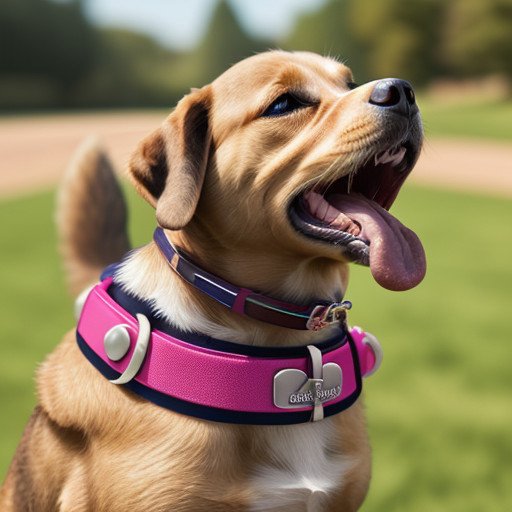
- Known for a variety of anti-bark collars, including citronella spray and static options.
- Customers appreciate the effectiveness and humane nature of PetSafe collars.
2. Dog Rook:

- Specializes in vibration and sound-based anti-bark collars.
- Customers praise DogRook collars for being gentle yet effective in curbing barking behavior.
3. Garmin:
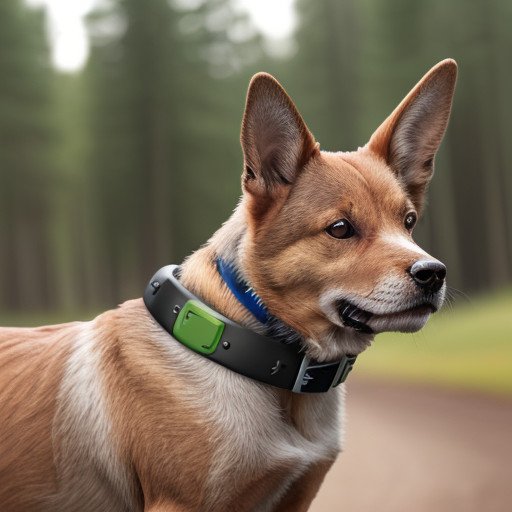
- Offers innovative bark collars with GPS tracking capabilities.
- Customers value Garmin’s high-tech solutions for training and tracking their dogs.
4. POP VIEW:

- Known for ultrasonic anti-bark collars that emit high-frequency sounds.
- Customers report success in reducing barking without discomfort to their dogs.
5. TBI Pro:

- Offers multi-functional collars combining vibration, sound, and shock features.
- Customers appreciate the versatility and effectiveness of TBI Pro collars for different types of barking.
When considering popular brands, it’s important to read customer reviews to understand real-world experiences. Look for collars that receive consistently positive feedback for effectiveness, comfort, and humane use. Additionally, consider factors such as warranty, customer support, and additional features offered by each brand. By researching popular brands and customer reviews, you can make an informed decision and find the best anti-bark collar that suits your dog’s needs and your training preferences.
** Conclusion **
In conclusion, finding the best dog collar to stop barking requires careful consideration of your dog’s behavior, temperament, and the effectiveness of different collar types. Remember, the goal is not to simply calm the barking but to address the underlying causes behind it while ensuring your dog’s comfort and well-being.

Explore different collar options such as citronella spray, shock, ultrasonic, or combination collars, keeping in mind the advantages and disadvantages of each. Consider consulting a veterinarian or professional trainer to tailor your choice to your dog’s specific needs.
Training and correct use is the key to success. Use positive reinforcement techniques along with collar training and avoid prolonged or excessive use. Monitor your dog’s reaction closely and prioritize their safety and happiness during the training process.
Finally, explore popular brands and customer reviews to gather insight and make an informed decision. Look for collars that receive consistently positive feedback for effectiveness, comfort, and ethical use.
With these considerations in mind, you can choose the best dog collar to deal with the problem of excessive barking and promote a harmonious relationship with your beloved canine companion.
You might be interested in reading this post as well Dog Care Shock Collar
“Silent Solutions: Finding the Perfect Anti-Bark Collar for Your Canine Companion” ** Introduction ** Are you tired of your furry friend’s constant barking? If you are wondering “ What is the best collar to stop a dog barking ,” then you have come to the right place. Dealing with a dog’s excessive barking can be…
You can read this post https://tomeshnews.co.in/what-type-of-collar-is-best-for-dog-training/
Are anti-bark collars safe for all dogs?

Anti-bark collars can be safe when used correctly and for appropriate durations. However, certain collars may not be suitable for very small or sensitive dogs. Consult with a veterinarian or professional trainer to determine the safest option for your dog.
Will an anti-bark collar stop all barking behavior?

Anti-bark collars can help reduce excessive barking, but their effectiveness may vary depending on the dog’s temperament and the underlying cause of the barking. They should be used in conjunction with training and positive reinforcement techniques.
How do I know which type of anti-bark collar is best for my dog?

Consider your dog’s behavior triggers and sensitivity level. For example, if your dog is sensitive to scents, a citronella spray collar may be effective. Consult with a professional to assess your dog’s needs and choose the most suitable collar type.
Are anti-bark collars humane?

The humane use of anti-bark collars involves proper training, monitoring, and avoiding prolonged use. Choose collars that prioritize your dog’s comfort and well-being, such as vibration-based or sound-based collars.
How long should I use an anti-bark collar on my dog?

Anti-bark collars should be used as a training tool for specific periods to address excessive barking. Avoid leaving the collar on continuously and always monitor your dog’s response.
Can anti-bark collars be used for puppies?

It’s generally recommended to avoid using anti-bark collars on puppies, as their behavior may be better addressed through positive reinforcement training and socialization. Consult with a veterinarian or trainer for alternative training methods suitable for puppies.
